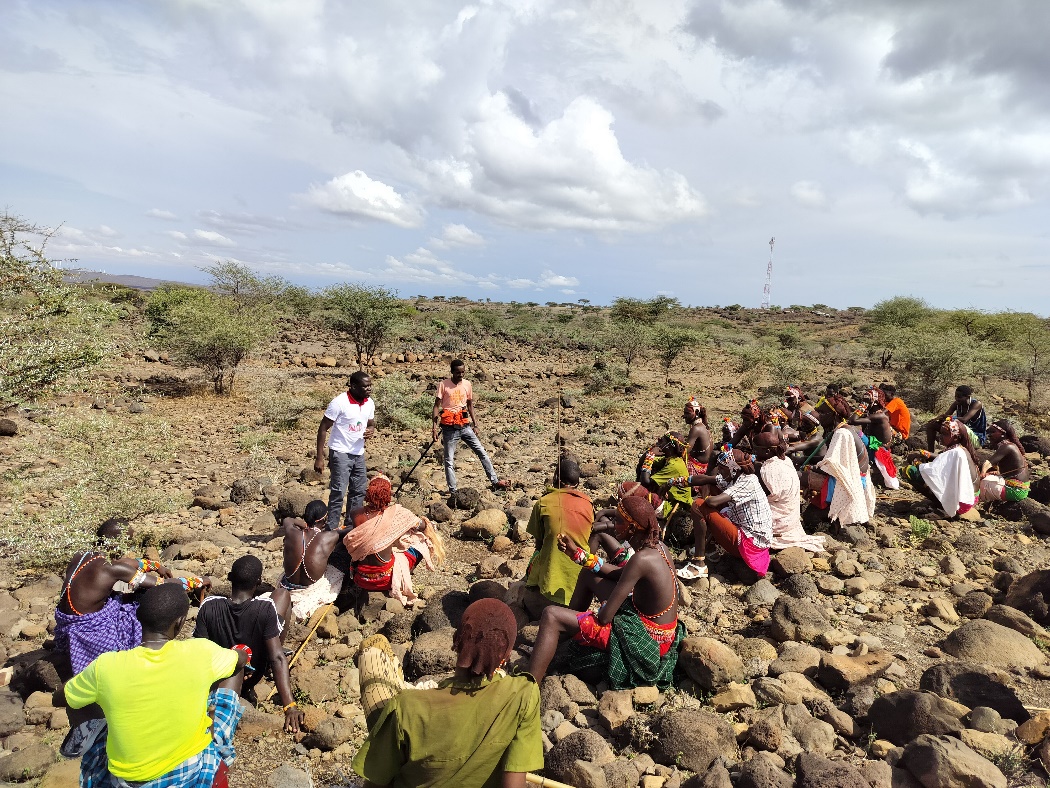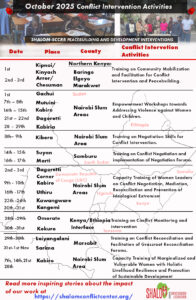By: John Kennedy Odhiambo MA,
Shalom-SCCRR has been implementing humanitarian, conflict transformation, peacebuilding, and school/educational development interventions in multiple locations in Eastern Africa without discrimination to any social and religious institution since 2009. The interventions are characterized by being in remote, marginalized conflict-prone pastoralist areas in northern Kenya, at the Kenya-Ethiopia-South Sudan-Uganda interface, and in major urban areas in informal settlements and slums.
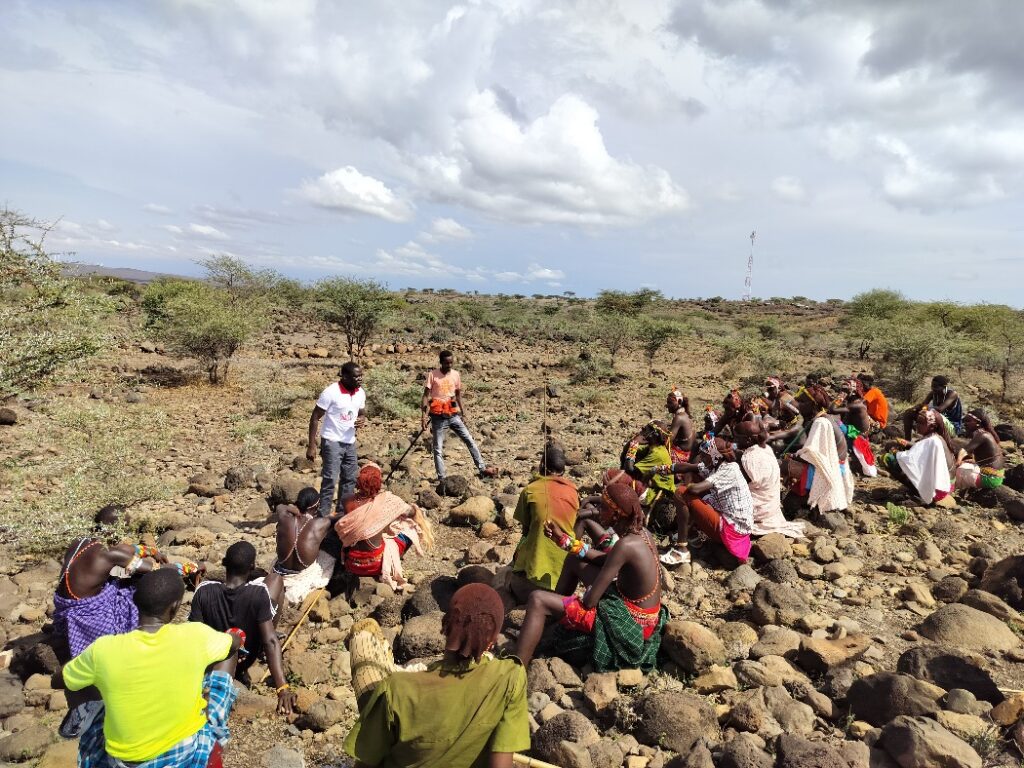
Currently, Shalom is engaging different groups in 36 conflict environments, and youth are a key target group because of their susceptibility to conflict situations. Based on the research findings (Shalom-SCCRR conducted), youth were found to be both victims and perpetrators of violent conflict.
The 2019 population and census results by the Kenya National Bureau of Statistics indicate that 75% of the 47.6 million population is under 35 years old. 13,777,600 (29%) of this population comprises youth aged 18-34. The census report also records that over 70% of the unemployed population comprises youth.
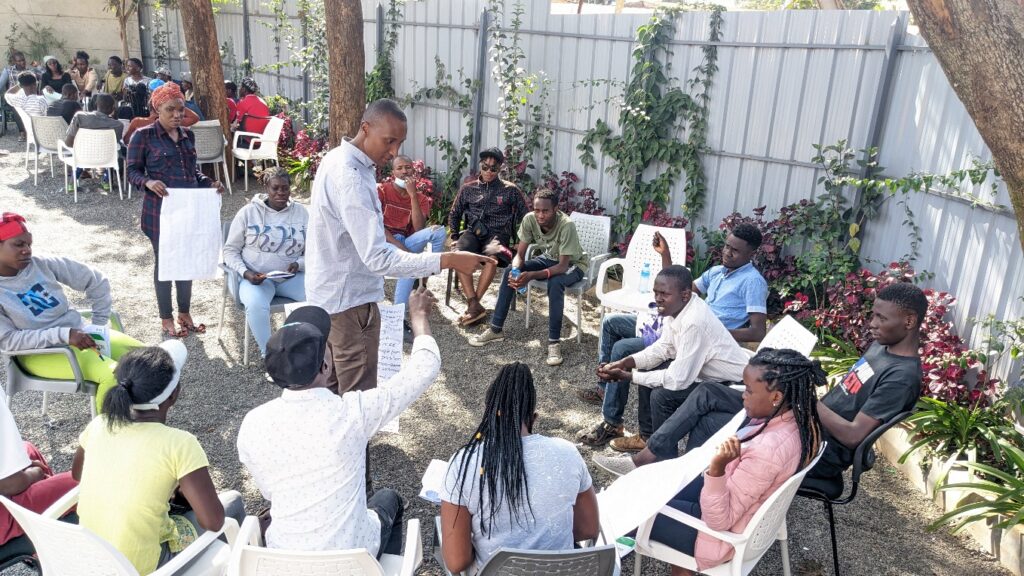
Radicalization and recruitment of youth into violent extremism are some of the significant challenges facing many urban informal settlements and slums in Kenya. Organized radicalized groups within Eastern Africa and from other regions have capitalized on youth bulge and unemployment exacerbated by factors such as under-performing economies, poor governance and corruption, among others. “Over an extended period, youths have faced socio-economic marginalization, political exclusion, and religious ideological extremism, which are fuel factors for youth radicalization and extremism” (https://mural.maynoothuniversity.ie/9086/7/PD-Radicalisation-2017.pdf).
In the arid landscapes in northern Kenya and its borders, pastoralist communities are grappling with the harsh realities of extreme weather events such as droughts and floods, resulting in famine and starvation, human and livestock deaths and displacement of populations. The pastoralist way of life and the harsh environmental conditions have led to deadly inter-ethnic violence. Research shows that Morans (young men trained as warriors to protect their communities) are key perpetrators in inter-ethnic violence that has been linked to incessant livestock rustling, theft, and road banditry, among other crimes.
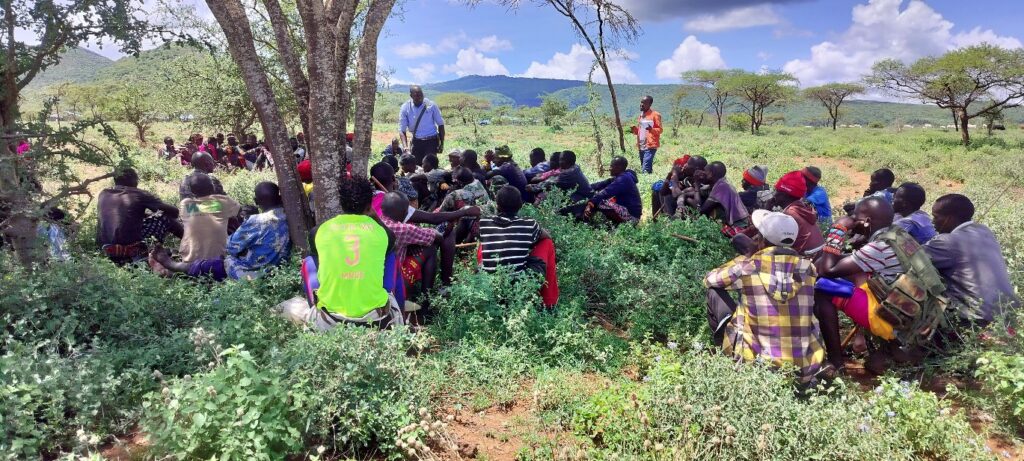
To address both the immediate and long-term needs of these vulnerable youths, Shalom-SCCRR trains youths to be the architects of peace, tolerance and reconciliation for several reasons:
To break the cycle of violence: Many towns and Cities in Kenya are characterized by informal settlements with huge populations of youths suffering from high levels of poverty, unemployment and crime, leading to cycles of violence, imparting these youths with necessary skills in conflict transformation and peacebuilding can interrupt the cycle and promote alternative paths to resolving disputes and conflicts. To avert this, Shalom-SCCRR conducts a series of activities such as research, training on conflict analysis and transformation, peace education, women empowerment, counselling programs, livelihood and School/educational development to end the cycle of violence that affects the youths living in marginalized areas.

Building social cohesion: Peace training fosters a sense of community and belonging among youths. The training helps them to create social bonds within their communities, reducing tensions and promoting cooperation. Shalom-SCCRR has formed over 54 peace clubs in various project areas and empowered teachers and peace club members to 18,133( Boys, 9335, Girls, 8778). The empowered student population has become a formidable team leading local peacebuilding and promoting social cohesion in conflict-tone communities (http://2009-2023 SHALOM-SCCRR RESULTS AND ACHIEVEMENTS).
Empowering marginalized communities: Many youths, especially those who live in the slums, are often marginalized and lack access to educational and economic opportunities. Peace training empowers them to navigate challenging situations and advocate for their rights nonviolently. Shalom empowerment package for the youths includes organizing local peacebuilding structures, training, livelihood programs, leadership programs, and talent-building programs. In the past 15 years, over 162,000 learners have benefitted from Shalom-SCCRR training programs across Eastern Africa (http://2023 SHALOM-SCCRR SCHOOL/EDUCATIONAL DEVELOPMENTS RESULTS AND ACHIEVEMENTS).
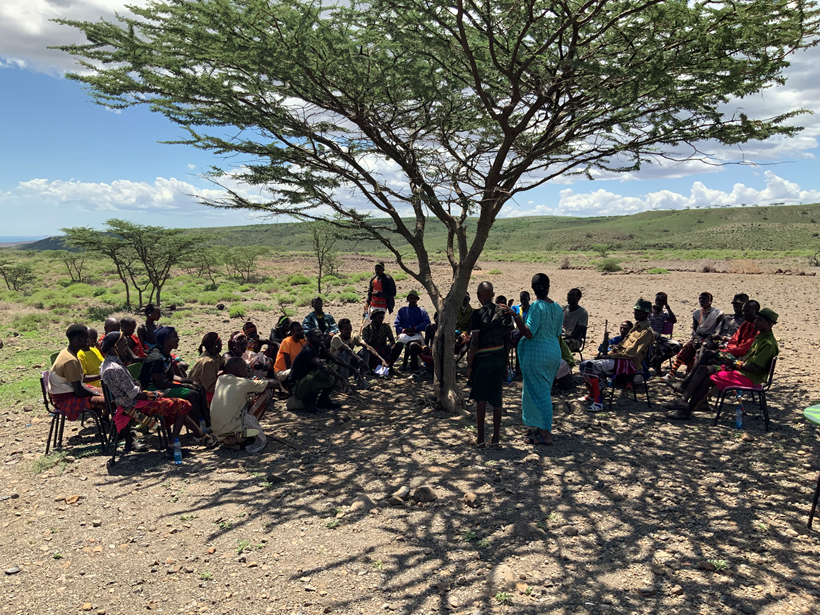
Promoting sustainable developments: Peace is a prerequisite for sustainable development. Conflicts in the slums and other marginalized regions like Northern Kenya have disrupted economic and social activities, hindering progress and exacerbating poverty. Shalom-SCCRR’s training of youths has created environments conducive to development and prosperity. In addition to creating conducive environments through peace programs, the organization has promoted School development through School/Institutional development programs. In the past 15 years, over 671 School development programs have been completed, with over 207,086 benefitting from the supported institutions.

Preventing recruitment into violent extremism: Youths living in the slums are often targeted by extremist groups or criminal organizations, offering them a sense of belonging and purpose through violence. Kenya has faced threats from terrorist organizations—chief among them al-Shabaab. Al-Shabaab operates in Kenya’s eastern border region with Somalia. The group has conducted several high-profile terrorist attacks in Kenya, including the 2013 Westgate shopping mall attack in Nairobi, which killed 67 people (CNN, 2013), the 2015 Garissa University College attack, which killed 141 people (BBC, 2015), and the 2019 DusitD2 hotel attack, which killed 26 people (Counter Extremism, 2020).
In 2014, it was estimated that 25 per cent of al-Shabaab’s forces were Kenyans. Additionally, there have been several cases of Kenyan citizens joining the Islamic State (Counter Extremism, 2020). The risk of further terrorist attacks and increased radicalization efforts continues to be a significant source of concern. Peace training targeting the youths living in those target areas by Shalom-SCCRR serves as a deterrent, offering alternative pathways that are constructive and non-violent. Shalom-SCCRR conducts training for youths in areas where youths are vulnerable and are easily lured into extremist groups capable of causing violence in order to provide them with alternative options for a better future.
Fostering leadership: According to Rev. Dr. Patrick Devine, “Youths are not merely leaders of tomorrow, but people with immediate needs, such as peace reconciliation and development that must be met in the here and now. Shalom-SCCRR’s, conflict transformation and peace education across the region encourages youths to become active agents of change in communities. By empowering these youths with peacebuilding initiatives, the organization cultivates a new generation of leaders who can advocate for positive change.

Creating a culture of peace: Ultimately, Shalom-SCCRR’s training of youths from conflict-prone areas has contributed to the creation of a culture of peace in many target regions. When a mindset of peace and reconciliation becomes ingrained in individuals’ or group’s values and behaviours, it has the potential to ripple outwards, influencing broader societal attitudes and norms towards conflict resolution.
Author: John Kennedy Odhiambo MA, Shalom-SCCRR Project Officer, Samburu Projects
Relevant Links
- Shalom-SCCRR. (2024). 2023 Shalom-SCCRR Results and Achievements. https://shalomconflictcenter.org/wp-content/uploads/2024/01/2023-Peacebuidling-Conflict-Transformation.pdf
- Shalom-SCCRR. (2024). Chairman’s Report for 2023; Rev. Dr. Patrick Devine. https://shalomconflictcenter.org/chairmans-report-for-2023-rev-dr-patrick-devine/
- Shalom-SCCRR. (2024). 2009-2023 Shalom-SCCRR Results and Achievements. https://shalomconflictcenter.org/wp-content/uploads/2024/05/14-Years-of-Shalom-SCCRR-2009-2023-LV-Full-Report.pdf
- Shalom-SCCRR. (2024). 2023 Shalom-SCCR School/Educational Developments Results and Achievements. https://shalomconflictcenter.org/2023-shalom-sccrr-school-educational-developments-results-and-achievements/.
- Shalom-SCCRR. (2024). 2023 Shalom Empowerment Center (SEC) Addressing Violence against Women and Children Results and Achievements. https://shalomconflictcenter.org/wp-content/uploads/2024/03/2023-SEC-Report-Shalom-SCCRR.pdf
- A Perspective on the Philosophy and Work of Shalom-SCCRR by Prof. Wanakayi K. Omoka (RIP) remembered, with the 2023 Results Added by the Dept. of Monitoring, Evaluation and Learning (MEL).https://shalomconflictcenter.org/a-perspective-on-the-philosophy-and-work-of-shalom-sccrr-by-prof-wanakayi-k-omoka-rip-remembered-with-the-2023-results-added-by-the-dept-of-monitoring-evaluation-and-learning-mel/
- Akedi, J., Kibe, E. & Osiro, M. (2023). Shalom-SCCRR Peace Education in violent and deprived locations: Interventions within Schools in Kenya’s Urban Informal Settlements (Slums) of Kibera, Mathare, and Kariobangi. https://shalomconflictcenter.org/shalom-sccrr-peace-education-in-violent-and-deprived-locations-interventions-within-schools-in-kenyas-urban-informal-settlements-slums-of-kibera-mathare-and-kariobangi/
- Akedi, J. (2020). Briefing Paper No 1: A Conflict Analysis of Nairobi’s Informal Settlements. https://shalomconflictcenter.org/briefing-paper-no-1/
- Akedi, J. (2020). Thousands of Children and Families in Nairobi’s Korogocho Slum Benefit from Shalom-SCCRR Transforming Interventions. https://shalomconflictcenter.org/thousands-of-children-and-families-in-nairobis-korogocho-slum-benefit-from-shalom-sccrr-transforming-interventions/

